Yellow weather warnings remain in place across the UK following the first snowfall of the season which led to the closure of almost 200 schools on Tuesday morning.
From 17:00 GMT on Tuesday, a yellow warning has been issued for southern and central England, as well as eastern parts of Wales, which will remain in place until 10:00 on Wednesday.
Warnings for eastern and northern England, south-west Scotland and Northern Ireland will come into effect from 18:00 GMT.
Northern Scotland is also under a yellow warning until Wednesday morning.
A yellow warning means it is likely that the weather will cause some low level disruption to travel and the danger of slips and falls on icy ground.
BBC Weather forecaster Tomasz Schafernaker said snow and ice is expected to affect south Wales on Tuesday afternoon, with 2-5cm (1-2in) expected on higher ground before the snow clears to the south later.
In a post on X, the Met Office said roads will turn icy later on Tuesday, and advised people to take extra care if they are out and about.
Counties along the North Sea coast will also see snow showers during Tuesday evening and into Wednesday morning with the possibility of 10cm (4in) accumulations over higher ground.

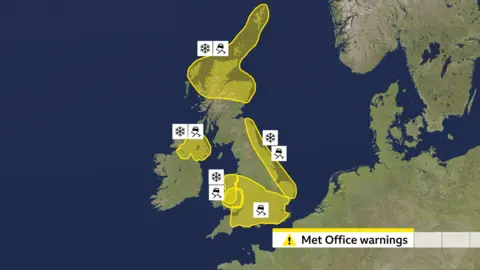
Temperatures in the coming days will be much lower than the mid-November average by day – and are expected to reach below freezing by night.
They are predicted to drop to -2C in London on Friday, -4C in Birmingham and -7C further north.
The average November temperature for London is 11C during the day and 5C at night.
The RAC said Tuesday’s snow was the “first taste of winter” for many drivers with “some of the worst road conditions we’ve seen all year”.
Spokesperson Alice Simpson said: “Everyone should travel prepared in case they find themselves broken down at the side of the road: a blanket, warm waterproof coat and gloves, sturdy footwear and a charging cable and mobile power bank are all essentials.”

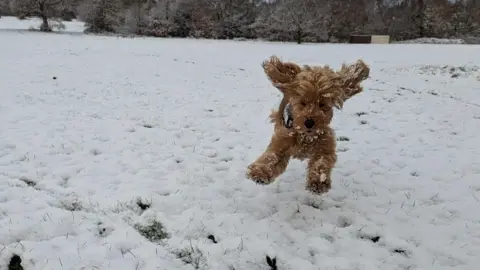 Laura Sabourn
Laura Sabourn

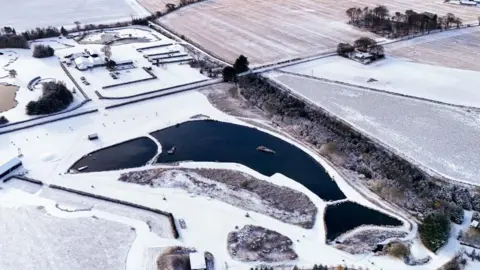 PA Media
PA Media

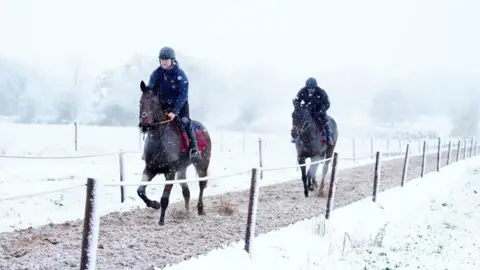 PA Media
PA Media
The UK health security agency (UKHSA) has issued an amber cold weather health alert for the east of England, East Midlands, West Midlands, North East, North West and Yorkshire and the Humber.
This means that there is an increased risk to vulnerable people, warning the weather could have an impact on the whole health service.
“It is vital to check in on vulnerable friends, family and neighbours to ensure they are well prepared for the onset of cold weather. Particularly if they are elderly or otherwise at increased risk,” Dr Agostinho Sousa, head of extreme events and health protection at UKHSA, said.
As the weather turns colder, some people may be eligible for cold weather payments – a government benefit top-up to help with fuel bills during times of exceptionally cold weather.

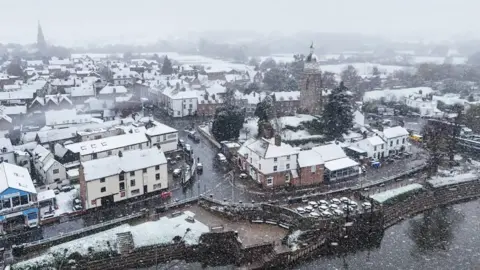 PA Media
PA Media








